Why-Allah-has-Made-Some-of-Us-to-Excel-Others.jpg" alt="On Islam" width="576" height="360" /> A truly pious and humble person would carry out his responsibilities of calling people to Islam, fearing that not doing so might be sinful. (Photo: On Islam)
By Salman Al-Oadah, Muslim Scholar
Allah says:
{He is the one who made you the inheritors of the Earth and He raised some of you above others by degrees to try you in what He has given you. Truly, your Lord is swift to punish as truly He is forgiving and merciful.} (6: 165)
This verse has a wonderfully logical progression of meaning that goes as follows:
Also Read: Imaam Yakhsyallah: Nurture Love for the Prophet, One Will Be with Whom One Loves
1. “He is the one who made you the inheritors of the Earth…”
Allah has placed humanity in charge of the Earth. He has placed us in this position of responsibility to see how we will conduct ourselves. This is our very reason for existence, and this is something we all share as human beings.
2. “…and He raised some of you above others by degrees…”
Allah has made some of us to excel others. These degrees of excellence are many and varied, embracing all the different ways people can surpass one another.
Also Read: Thanksgiving: An Islamic Perspective
This is the way of Allah in the world. Allah explains this in greater detail elsewhere in the Quran where he says:
{It is We who portion out between them their livelihood in the life of this world and We raise some of them above others by degrees so that some may command work from others. But the mercy of your Lord is better than the wealth that they amass.} (43: 32)
3. “…to try you in what He has given you.”
The reason Allah endows us differently is in order to try us in what He has given us. These ranks that He places us on – in other words, all the blessings that He bestows upon us – are a test for us.
Also Read: Achieving the Position of Fasting Expert with Kindness of Morality
Will we be successful by submitting our gifts to the service of Islam or will we squander our gifts?
Or worse yet, will we use them to our detriment?
4. “Truly, your Lord is swift to punish as truly He is forgiving and merciful.”
Allah is swift to punish as well as forgive. If we use the gifts that Allah has blessed us with to disobey Him and to deny His Messengers, then we hasten on His punishments in this world and the next.
Also Read: The Power of Charity in Ramadan
On the other hand, if we employ our gifts in the service of righteousness, then Allah will pardon our shortcomings, for He is truly forgiving and merciful. How unfortunate it is that so many people take the vast intellectual powers that Allah has blessed them with and squander them in useless endeavors that provide neither spiritual nor worldly benefit.
How wasted are the talents of those endowed with elegance who merely pen vacuous and licentious romances and do nothing for the upliftment of their people.
It is equally painful to see how many other gifted and pious people are lulled into the trap of complacency – either by a false asceticism or by false sense of modesty – and therefore neglect to carry out the duties that Allah requires of them. However, if you were to coax one of these people into expressing himself, you would usually find him lamenting the general lack of willingness to work for Islam and the need for so much to be done.
We must ask such a person: “Who is it who has failed to do his part? Can’t you see that it is obligatory upon you specifically to act, since you have the ability to do something and be an example for others?
Also Read: Ramadan Brings the Change
Stop making empty excuses.
Don’t you read the Quran where Allah calls on us to pray:
{Our Lord! Grant unto us wives and offspring who will be the comfort of our eyes and make us leaders of the righteous.} (25: 74)?
Is it right for a person like yourself to offer such a supplication and then act in the opposite manner?”
Also Read: Ramadan, the Month of Education
Allah’s Messenger (peace be upon him) taught us to first do all that we can to achieve our goals and then to ask Allah to realize our goals for us.
When the Prophet (peace be upon him) wanted to take over Makkah, he placed military outposts and guards on the outskirts of Madinah to prevent the news from leaking. He took all the practical measures that he had to take then turned to Allah and prayed to Him to prevent the Makkans from finding out about his plans.
`Umar once saw some camels afflicted with a skin disease, so he asked the people what they planned to do to treat the camels’ affliction. They told him that they had among them a pious old man who went out to the camels every day and prayed to Allah to heal them. To this `Umar said:
“Along with the old man’s supplication, you should place tar upon the camels’ skin.” (Tar was an effective medical treatment for that particular disease.)
Also Read: Come on Do I’tikaf
The fields of Islamic propagation and Islamic scholarship are being severely and dangerously neglected. This is why there are so many unqualified people moving to the fore. It is a strange form of piety and humility for a person to neglect his obligations. A truly pious and humble person would carry out his responsibilities of calling people to Islam, fearing that not doing so might be sinful.
Have we entered into an era of indolence where we interpret piety and humility to mean inaction, even when such inaction may be unlawful in Islam?
Every blessing that Allah bestows on us is a trial. People can usually see this when it comes to material things. Unfortunately, they often forget this fact when it comes to the innate gifts and acquired skills that Allah has blessed them with.
The Muslim community – as well as every individual it contains – has the duty of realizing its fullest potential and of carrying out its duties and responsibilities in the most excellent manner. Allah has not imposed this burden on the Muslim community except with His knowledge that this community and the various people it contains will have the ability and the wherewithal to carry it out.
Also Read: During Ramadan, Merit and Good Deeds are Multiplied
The Muslim world has been afflicted with the sickness of indifference and mutual incrimination. Some of us have become quite proficient at foisting the blame on others and shrugging off any hint of responsibility from our own shoulders.
We seem to think that the cause of our problems lies with our forefathers and that the solutions will come from our descendants. The first thing we need to do as individuals is to become more confident in ourselves.
We need to realize our potentials and how we can effectively employ our gifts to move forward. We are responsible before Allah for what He has blessed us with. A wealthy person has charitable responsibilities that a poor person obviously does not have.
A man of physical strength must realize that those who are weak have a right over him, just like a person of sight owes it to a blind man to help him. The same goes for our intellectual abilities and our skills, which we must use to defend the truth and establish what is right; yet how many of us realize that? How many people who have been blessed with fluency and eloquent speech use this gift to call others to Islam?
Also Read: Ramadan, The Month of Jihad
Do those who neglect to do so expect that on the Day of Judgment the reckoning of the wealthy man and the poor man will be the same?
Do they think that a brilliant person will have nothing more to answer for than a fool?
How then can they expect the reckoning of an eloquent speaker to be the same as that of a mute? (P007/R03)
Mi’raj Islamic News Agency (MINA)
Also Read: Increasing Social Care in the Month of Ramadan
Source: onislam








![Israeli tanks and APC’s gather by the Israeli – Lebanese border. Amid Israel’s escalating campaign against Hezbollah in Lebanon on September 30, 2024. [Erik Marmor/Getty Images]](https://en.minanews.net/wp-content/uploads/2024/10/IMG_20241001_203226-300x197.jpg)




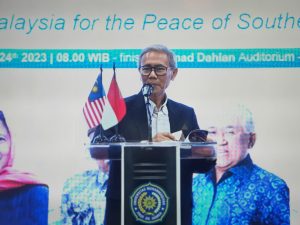
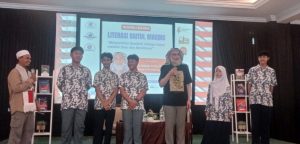
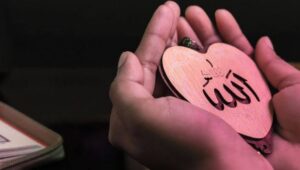
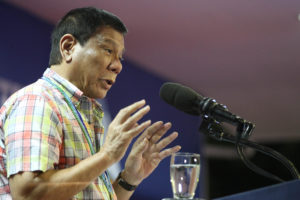
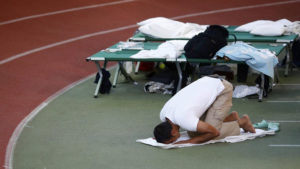
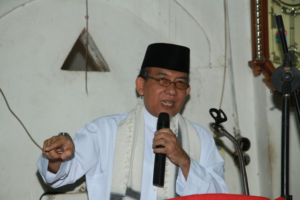

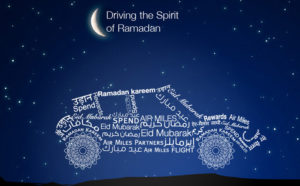










 Mina Indonesia
Mina Indonesia Mina Arabic
Mina Arabic